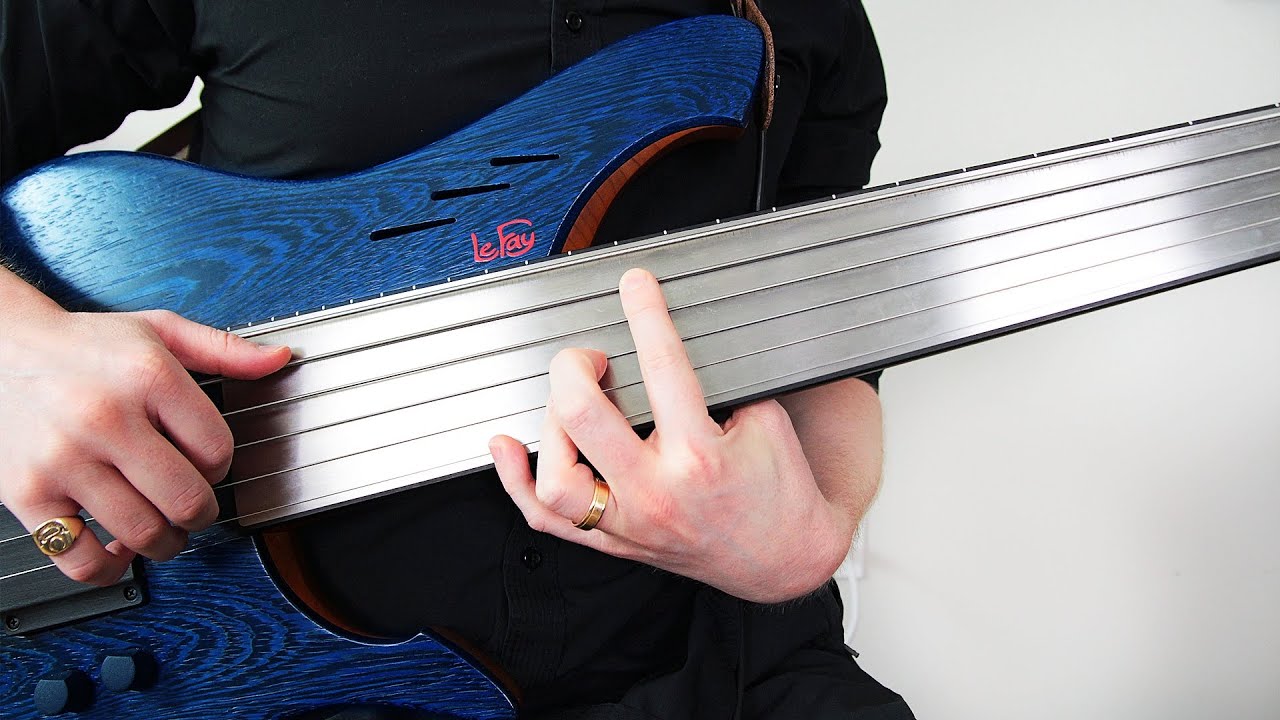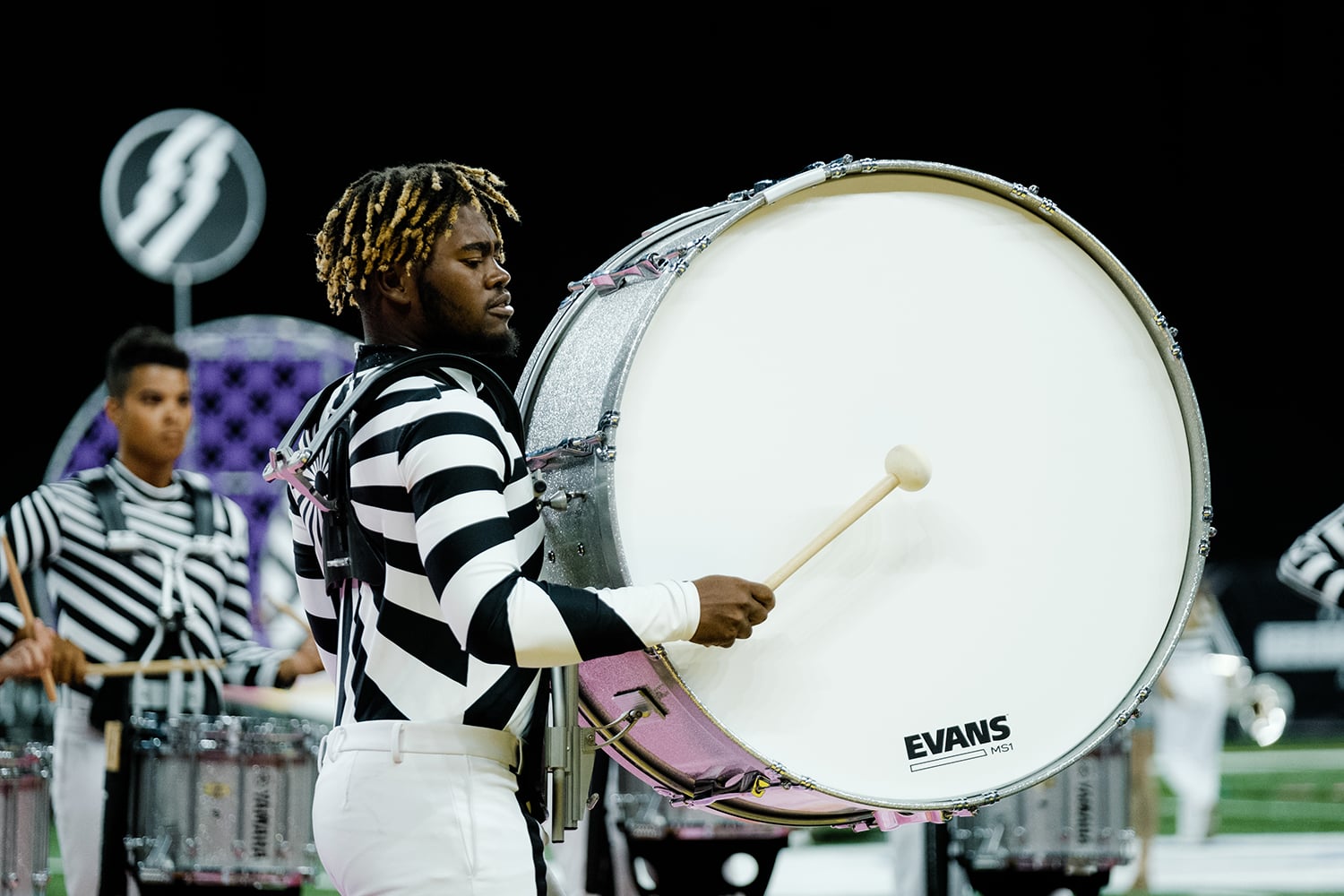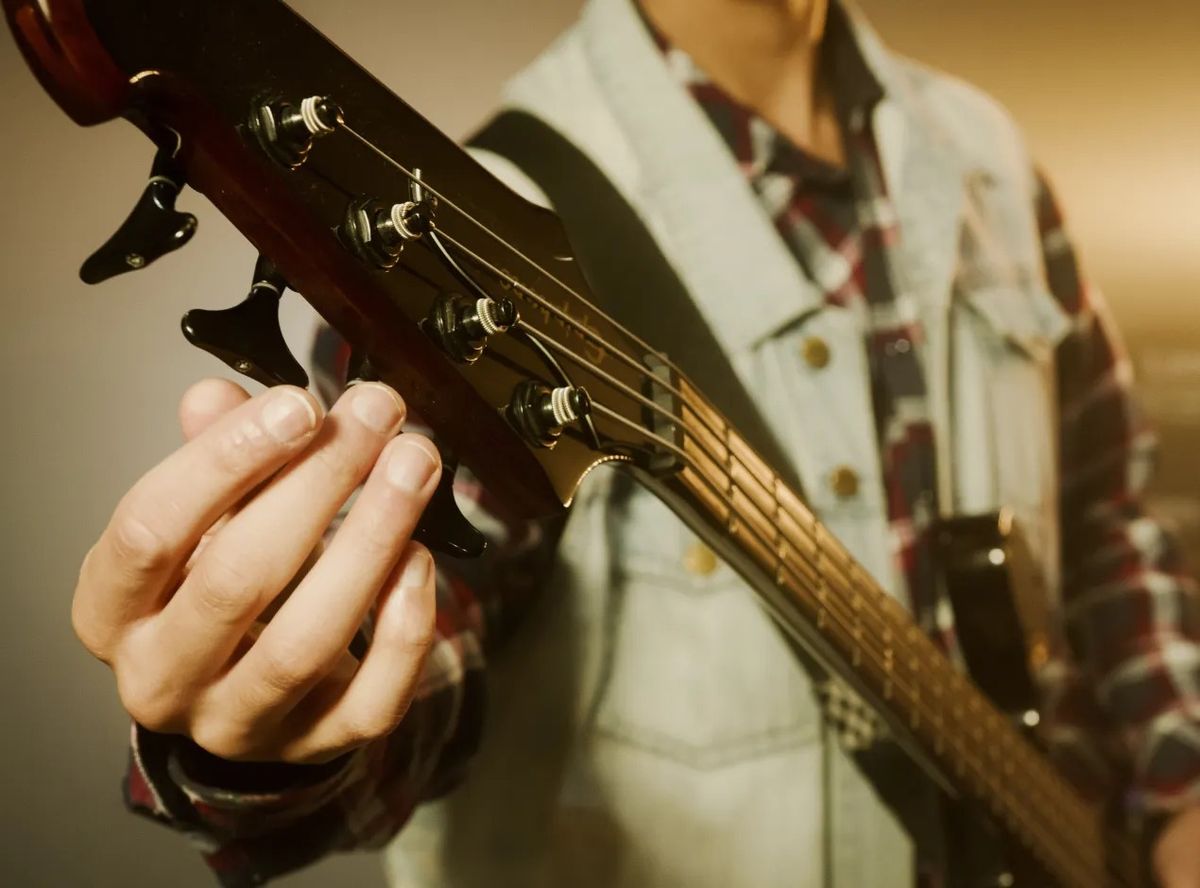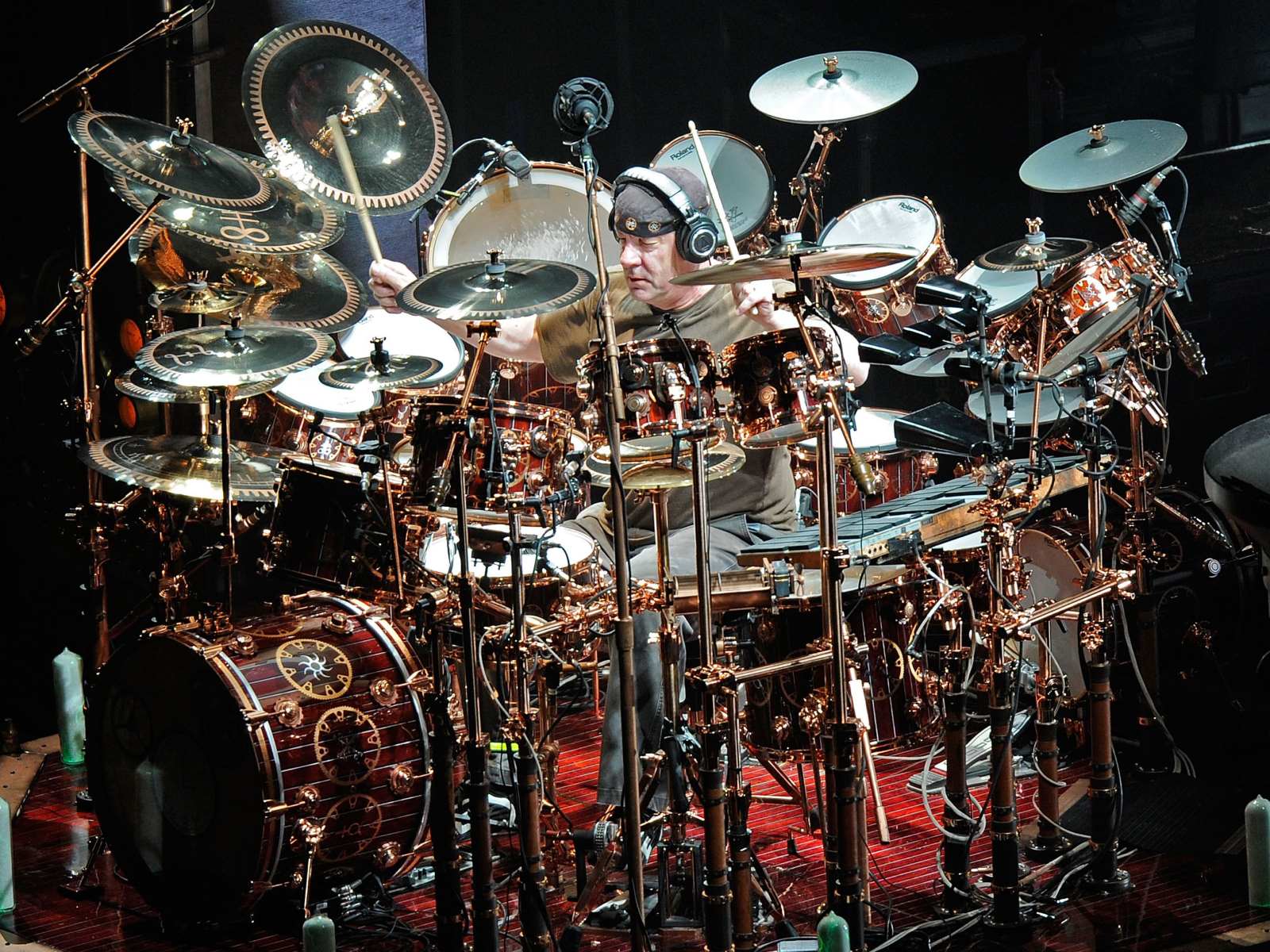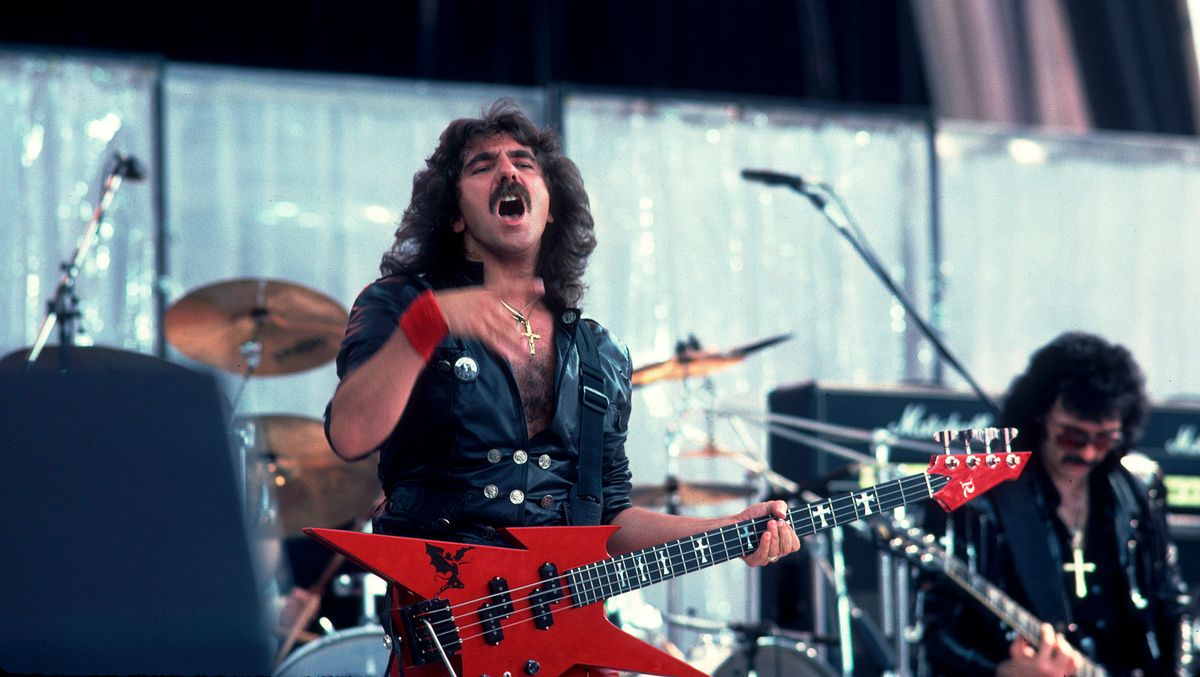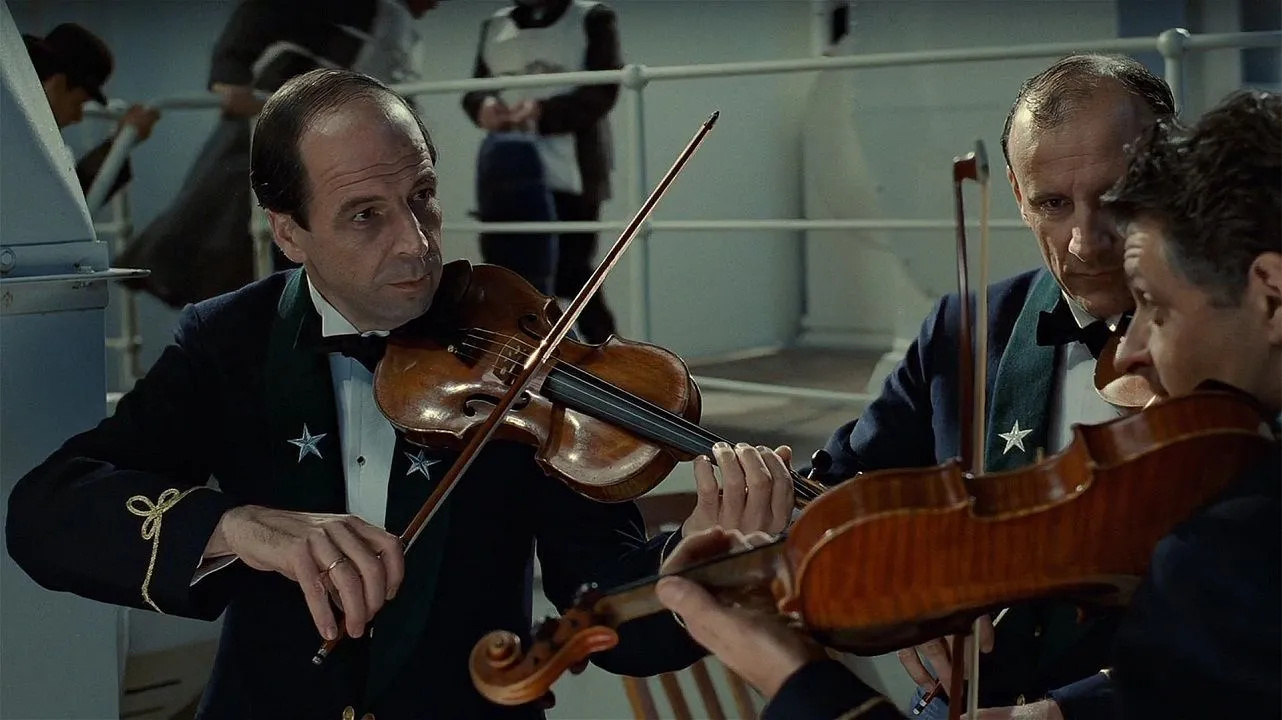Home>Instruments>Bass>What Bass Did Cliff Burton Play


Bass
What Bass Did Cliff Burton Play
Modified: January 22, 2024
Discover the bass guitar that Cliff Burton played and revolutionized heavy metal music. Learn about his iconic bass and its impact on the music world.
(Many of the links in this article redirect to a specific reviewed product. Your purchase of these products through affiliate links helps to generate commission for AudioLover.com, at no extra cost. Learn more)
Table of Contents
Introduction
When it comes to the world of bass guitar, one name that stands out is Cliff Burton. The iconic bassist of Metallica, Burton left an indelible mark on the world of heavy metal music. Known for his powerful playing style, melodic bass lines, and incredible stage presence, Burton’s contributions to the band’s sound are still celebrated today.
Born on February 10, 1962, in Castro Valley, California, Burton showed an early interest in music. He began playing piano at the age of six and later picked up the bass guitar, quickly mastering the instrument. Throughout his teenage years, Burton honed his skills by listening to a wide range of music genres, including classical, jazz, and progressive rock.
It was this diverse musical background that shaped Burton’s unique playing style. He seamlessly blended elements of classical music with the heavy, aggressive sound of Metallica, creating a distinctive bass sound that set the band apart from their contemporaries.
In 1982, Burton joined Metallica, becoming an integral part of the band’s lineup. His technical prowess and musicality provided a solid foundation for the band’s relentless thrash metal sound. Burton’s contributions were prominently showcased on the band’s groundbreaking albums, including “Ride the Lightning” and “Master of Puppets.”
Tragically, Burton’s life and career were cut short on September 27, 1986, when he died in a tour bus accident at the age of 24. Despite his untimely death, Burton’s impact on the world of bass guitar and heavy metal music continues to resonate.
Early Musical Development
Cliff Burton’s journey as a musician began at a young age. Growing up in a musically inclined family, he was exposed to various genres and instruments from an early age. At the age of six, Burton started taking piano lessons, which laid the foundation for his understanding of melody and harmony.
As Burton continued to explore music, he discovered his passion for the bass guitar. He was drawn to the instrument’s deep, resonant tones and its crucial role in holding down the rhythm section. With his natural talent and dedication, Burton quickly progressed on the bass guitar, experimenting with different playing techniques and styles.
During his formative years, Burton immersed himself in a wide range of musical genres. He drew inspiration from classical composers like Johann Sebastian Bach and Ludwig van Beethoven, appreciating their complex harmonies and intricate melodies. He also explored the realms of jazz, finding inspiration in the improvisational nature of the genre.
Another significant influence on Burton’s musical development was progressive rock. Bands like Rush and King Crimson captivated him with their intricate compositions and technical prowess. Burton’s exposure to these different musical styles shaped his approach to the bass guitar and greatly contributed to his unique playing style.
While Burton was skilled on the bass guitar, he also had a keen ear for other instruments. He experimented with playing the guitar and synthesizer, allowing him to further expand his musical horizons. This multi-instrumentalist approach gave Burton a deeper understanding of music as a whole and helped him develop his own musical identity.
During his teenage years, Burton formed various bands and performed in local venues, gaining valuable experience as a live musician. He also continued to refine his skills through practice and study, immersing himself in the works of influential bassists like Jaco Pastorius and Stanley Clarke.
It was clear from an early age that Burton had a natural talent and a deep love for music. His commitment to honing his craft and his willingness to explore different musical genres laid the foundation for his future success as one of the most influential bassists in metal history.
Joining Metallica
Cliff Burton’s path took a significant turn when he joined the thrash metal band Metallica in 1982. At the time, Metallica was a rising force in the underground metal scene, known for their intense and aggressive sound.
Burton’s audition for Metallica came about by chance. While attending a show in San Francisco, the band’s original bassist, Ron McGovney, informed Burton that Metallica was searching for a new bass player. Intrigued by the opportunity, Burton expressed his interest and was soon invited to audition.
From the moment Burton stepped into the rehearsal space, his talent and musicianship were evident. His technical prowess on the bass guitar, coupled with his unique approach to composition, impressed the other members of Metallica. It was clear that Burton brought something special to the table.
After joining the band, Burton’s influence on Metallica’s sound was profound. He brought a melodic sensibility to the band’s often aggressive and fast-paced music, creating a perfect balance between heaviness and musicality. His bass lines added depth and complexity to Metallica’s songs, elevating their sound to new heights.
Burton’s creative input extended beyond just his bass playing. He contributed significantly to the songwriting process, collaborating with the other band members to develop their signature sound. His musical ideas and arrangements helped shape Metallica’s iconic albums like “Ride the Lightning” and “Master of Puppets.”
Moreover, Burton’s stage presence was captivating. His charismatic energy and on-stage performance added a vital element to Metallica’s live shows, drawing the audience into the music. Whether it was executing intricate bass solos or headbanging in sync with the other band members, Burton’s presence was unparalleled.
Tragically, Burton’s time with Metallica was cut short. On September 27, 1986, while touring in Sweden, the band’s tour bus rolled over in an accident, claiming Burton’s life at the age of 24. His untimely death sent shockwaves through the music world, leaving a void that could never be filled.
Although Burton’s time with Metallica was relatively short, his impact cannot be overstated. His contributions to the band’s sound and artistic direction continue to be celebrated by fans and musicians alike. He remains an integral part of Metallica’s history and legacy, forever immortalized as one of the greatest bassists in metal music.
Gear and Equipment
Cliff Burton was known for his distinctive bass sound, and his choice of gear and equipment played a significant role in shaping his iconic tone. He carefully selected his instruments and utilized various effects and amplification to achieve his desired sound.
One of the bass guitars most associated with Burton is the Rickenbacker 4001. He primarily used a 1979 Rickenbacker 4001 model, which became his signature instrument. The unique design and bright, punchy tone of the Rickenbacker 4001 suited Burton’s playing style perfectly, allowing his bass lines to cut through the heavy guitars and drums.
To further shape his tone, Burton relied on a range of effects pedals. His pedalboard included classics like the Morley Power Fuzz Wah, Electro-Harmonix Big Muff Pi, and MXR Phase 90. These pedals added distortion, fuzz, and modulation effects to Burton’s bass sound, enhancing the overall depth and texture of his playing.
Amplification played a crucial role in delivering Burton’s powerful bass sound to the audience. He used a combination of brands, including Ampeg and Mesa Boogie, to achieve the necessary volume and clarity. The thunderous low end and growling midrange of his bass were amplified through large speaker cabinets, ensuring his presence was felt throughout the venues they played.
One notable aspect of Burton’s gear was his use of a specific playing technique called “chopping.” This involved muting the strings with his right hand while simultaneously plucking them, resulting in a staccato-like effect. The combination of chopping and his aggressive attack on the strings added a unique rhythmic quality to his bass lines.
Burton’s commitment to achieving his desired tone didn’t stop at his gear. He was known to experiment with different string gauges and techniques to fine-tune his sound. This dedication to sonic perfection further showcased Burton’s meticulous approach to his craft.
The gear and equipment that Burton utilized became an integral part of his musical identity. His distinctive bass sound, characterized by its clarity, aggression, and melodic sensibility, influenced countless bassists who came after him. Today, his gear choices and playing techniques continue to inspire musicians and shape the world of bass guitar.
Technique and Playing Style
Cliff Burton’s technique and playing style were a testament to his incredible skill and musicality. His distinctive approach to the bass guitar set him apart from other bassists and contributed to Metallica’s unique sound.
One of the standout aspects of Burton’s playing style was his use of fingerpicking. Rather than relying solely on a pick, he favored using his fingers to pluck the strings. This technique allowed him to have greater control over the dynamics and tonal variations of his bass lines, resulting in a more expressive and nuanced sound.
Another hallmark of Burton’s playing style was his aggressive and percussive attack on the strings. He would dig into the strings with his fingers, creating a strong, punchy sound that added intensity and power to Metallica’s music. This aggressive playing style, coupled with his use of palm muting and chopping techniques, gave his bass lines a distinct rhythmic quality.
Burton’s musicality extended beyond just playing bass notes. He viewed the bass guitar as a melodic instrument and incorporated elements of melody into his bass lines. His classical training and exposure to various musical genres influenced his compositional approach, allowing him to craft bass riffs that were not only rhythmically driving but also melodically captivating.
A prime example of Burton’s melodic approach can be heard in his iconic bass solo on Metallica’s song “Anesthesia (Pulling Teeth).” This solo showcased not only his technical prowess but also his ability to create a memorable and melodic bassline that stood on its own as a powerful piece of music.
Burton’s playing style was also characterized by his willingness to step outside traditional boundaries. He was not afraid to experiment and push the limits of what could be done on the bass guitar. Whether it was incorporating unconventional scales or utilizing complex chord progressions, Burton sought to create a sonic experience that was both innovative and captivating.
It is worth noting that Burton’s playing style was not limited to Metallica’s studio recordings. He was known for his electrifying live performances, where his stage presence and energetic playing added a whole new dimension to the band’s music. He engaged with the audience, creating a connection and fueling the energy in the room.
Cliff Burton’s technique and playing style continue to inspire countless bassists and musicians to this day. His ability to seamlessly blend aggression, melody, and creativity on the bass guitar set a new standard for the genre. His musical legacy remains a testament to his extraordinary talent and innovative approach to playing the bass.
Influence and Legacy
Cliff Burton’s influence as a bassist and musician extends far beyond his time with Metallica. His unique playing style, musical creativity, and groundbreaking contributions to the world of heavy metal have left an indelible mark on the genre and continue to inspire generations of bassists and musicians.
One of Burton’s biggest contributions was his ability to elevate the role of the bass guitar within the context of heavy metal music. His melodic and intricate bass lines proved that the bass guitar could be more than just a foundational instrument in a band. He pushed the boundaries of what was traditionally expected from a bassist, bringing attention to the instrument’s potential for complexity and musical expression.
Burton’s approach to songwriting and composition also had a lasting impact. His involvement in the creative process of Metallica brought a new level of sophistication and musicality to the band’s sound. Through his inventive bass lines and thoughtful arrangements, he helped shape the band’s signature style and influenced the evolution of heavy metal music as a whole.
Furthermore, Burton’s technical prowess on the bass guitar inspired countless musicians to push themselves and explore the full potential of their instruments. His seamless integration of different playing techniques, innovative use of effects, and his ability to blend aggression and melody served as an inspiration for bassists across various genres.
Even after his tragic passing, Burton’s influence and legacy continue to thrive. His work with Metallica continues to be celebrated and revered by fans worldwide. Bands and bassists still look to his playing style and compositions for inspiration, and his bass solos, such as the legendary solo in “Orion,” are considered benchmarks of bass guitar wizardry.
Additionall, Burton’s influence extends beyond bass players, reaching guitarists, drummers, and musicians of all kinds. His ability to create memorable and powerful music resonates with artists who aspire to make an impact with their own compositions.
A prime example of Burton’s enduring legacy is his posthumous induction into the Rock and Roll Hall of Fame in 2009, alongside his Metallica bandmates. This recognition solidifies his status as a true icon in the world of rock and metal music.
Cliff Burton’s untimely death was a devastating loss to the music world, but his life and artistry continue to inspire and captivate fans and musicians alike. His innovative playing style, fearless creativity, and unmatched talent have cemented his place in the pantheon of bass guitar legends, and his legacy will undoubtedly endure for generations to come.
Conclusion
Cliff Burton was undoubtedly one of the most influential and revered bassists in the history of heavy metal music. His unique playing style, melodic sensibility, and technical prowess set him apart from his peers, leaving an indelible mark on the genre that still resonates to this day.
From his early musical development to his time with Metallica, Burton’s talent and dedication to his craft were evident. His innovation and willingness to push the boundaries of what was expected from a bassist helped redefine the role of the instrument in metal music. His melodic bass lines, aggressive playing style, and intricate compositions became a defining characteristic of Metallica’s sound and influenced countless musicians.
Burton’s legacy extends far beyond his contributions to Metallica. His influence as a bassist and musician can be heard in the work of numerous artists who have been inspired by his groundbreaking playing style and innovative approach to the bass guitar. His imprint on the genre is unmistakable and his impact continues to be felt in the world of heavy metal and beyond.
Although his life was tragically cut short, Cliff Burton’s legacy and the mark he left on the world of music will forever endure. His technical prowess, musical creativity, and fearless innovation continue to inspire and captivate fans and musicians alike. He remains an icon for bassists aspiring to elevate their instrument’s role in a band, and his enduring influence is a testament to his extraordinary talent and dedication.
Cliff Burton’s impact as a bassist and musician will continue to echo through the annals of rock and metal music history. His contributions have earned him a place among the greatest bassists of all time, and his music will continue to inspire and resonate with audiences for generations to come.


